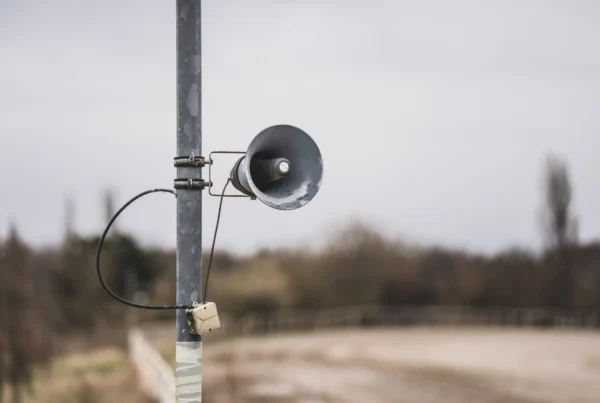We live in a world of connections. Our family and colleagues, the friends we hold dear, or the simplest of interactions in the checkout line. Of course, on the other side of those connections is you, and sometimes knowing what you can be like in certain interactions is the scary part.
We thrive on connection and a level of certainty about our place in the world, and will often make choices about our lives based on the amount of support we have. But when those connections are broken – or we perceive they are broken – we can experience a deeply-ingrained discomfort with life that keeps us from enjoying one of the things that makes our species unique: our complex web of social bonds. The breaking of our trust in these social bonds causes us to suffer what so many people experience as social anxiety.
What is Social Anxiety?
Before diving right into social anxiety, it is important to understand anxiety and its place in our lives and our evolution.
Does Fear Cause Anxiety?
Fear, in particular, fear of the unknown, is the precursor and main ingredient of anxiety. Fear kept our ancestors alive by activating biochemical responses to threats for hundreds of thousands of years from predators, weather conditions, or enemies moving into our territory. Fear is what warned our early ancestors that certain animals could do us physical harm and to stay away, to not stray too far from the village, or to be aware of when food or water became scarce.
What Brain Chemical Causes Anxiety?
Fear is not something we can rid ourselves of, because it has essentially helped our species survive to the present day in one way or another. After all, there is no bravery without fear.
When we experience fear, our brains release the stress hormones adrenaline and cortisol to focus on a threat to our safety and take action to avoid or neutralize it. It gives us the lift in our legs to run as fast as possible, while also increasing our heart rate to help us run and react.
Anxiety begins where fear leaves off. Whereas fear is our physiological response to an immediate or present threat to our safety or the safety of others, anxiety encompasses much of the same biochemical results of fear – the tensing of muscles, the quickness of breath, or a fear of death – without a real threat to our safety. These threats are perceived or believed in, but our bodies will continue using tools such as increased heart rate and restricted breathing to respond.
These days we can live in the world without the fear of a predator attacking us, but thousands of years of evolution have left their imprint on us forever. We are essentially living with the same hardware our ancestors developed, and using it in a world that is far more complex than they could have ever imagined.
Social anxiety disorder is a common form of anxiety disorder. It is debilitating in that it keeps us from establishing or enjoying the crucial emotional and psychological bonds we share with our colleagues at work, our family at home, and the friends that surround us. So often underpinned with fear, those suffering from social anxiety will perceive judgment from their peers or the inability to understand where they stand in the eyes of loved ones.
Social anxiety affects people at all levels of society. The National Institute of Mental Health claims that over 12 percent of people will suffer from social anxiety at some point in their lives. Introverts and extroverts, people who are successful, and those struggling to find their way, all tackle the unsettling fear of rejection and the perception of not being good enough in the eyes of people we love and are connected to. That’s why we must identify what causes social anxiety – and more to the point, what is causing our own social anxiety – to better understand how to overcome this painful condition and find our road to happiness.
Is Anxiety an Emotion?
In short, yes. Just as happiness and sadness are emotions, anxiety is an emotional response to the way we see the world, and our place in it. The American Psychological Association characterizes anxiety as “feelings of tension, worried thoughts, and physical changes like increased blood pressure” (American Psychological Association).
Someone who experiences intrusive thoughts that they are not good enough for their job or for their friends will often find themselves worried about rejection. Along with the physiological aspects of anxiety, emotionally we become tattered and frantic as we jump to conclusions about how we’ll be accepted into the world and by our peers.
What Causes Social Anxiety?
Social anxiety is a complex emotional, psychological, and physiological issue that can have one of many causes, or be caused by a mixture of issues. Ultimately, the causes all stem from fear, but often there are multiple fears overlapping that create unease in our life.
Fear of Failure
The fear of failure is a major cause anxiety, and one from which even successful people suffer.
Emerging adults experience a fear of failure as they set off into the world to prove their worth and demonstrate their abilities and skills. A fear of failure can manifest in worrying that you will never be successful or that success is too difficult to achieve. In some cases, those who do reach their goals fear the daunting task of accepting and maintaining their hard-fought position. Most people who suffer this fear however, sadly are paralyzed in inaction. Afraid of what the future may hold, they idle in apathy, perfectionistically plotting their next move.
Fear of Success
The fear of success seems paradoxical. Why would someone fear becoming successful? From our understanding of anxiety from above, the fear of success is really a fear that once anything is achieved, the maintenance of that achievement, both in terms of effort and in terms of the outward facing presentation of oneself, must be maintained. If success is not maintained, then the fear is that people will no longer view the achiever favorably. Thus, the achiever weighs out that it may be better to not obtain success in the first place, than to obtain it and lose it. This can be confounding for most though, as one simultaneously still may try to achieve successes, yet will remain guarded and scared about what that might bring.
Fear of Judgement
Another major driver of social anxiety is the fear of judgment from peers and loved ones.
We all at some point in our lives experience the feeling we do not belong. Especially in new and changing circumstances such as a new job or new school, we might ask ourselves “Do I belong?” or “Will they like me?” One can worry that they won’t be able to prove themselves to their peers, or that their family will look down upon their choices in life which exacerbates low self worth. This fear will drive people to avoid family gatherings or social get togethers so they don’t have to explain themselves or prove their worth.
How to Find Help for Social Anxiety
Finding help for social anxiety can be in itself anxiety-inducing. High-performers hate to admit they need help when the expectation to succeed is so high, but that doesn’t mean we should shy away from reaching out for help when we need it.
First and foremost, you have to accept that you deserve to be happy. We all deserve to feel comfortable in our own skin, and to suffer social anxiety is not in any way a failure. Our need to connect meaningfully with the people around us should lead us to explore new connections and new challenges, but before we can begin to tackle our social anxiety we must admit that we need help.
Help for social anxiety can come in many ways. Perhaps the best way to find help is through a trained and knowledgeable counselor who has experience aiding those suffering from social anxiety. Valiance’s blend of talk therapy with real-world coaching is our leading treatment for social anxiety where your therapist or counselor will explore your fears in conversation in an effort to reveal past traumas or coach you through reframing unhealthy beliefs.
Valiance’s anxiety therapists develop individual counseling relationships with clients to explore why you feel anxious in social situations and what kind of social situations trigger your anxiety. You’ll also work to identify the thought patterns that can spiral into social anxiety. Being able to identify when your thoughts and feelings are spiraling out of control is a major step in adjusting your worldview.
At Valiance, we also employ a synergistic approach, coupling effective therapy with compassionate care and behavioral health life coaching. We work to understand where emerging adults people want to be and help to develop sustainable behavioral changes to build mental and emotional well-being for the challenges and successes ahead.
Conclusion
If you’ve made it this far, it’s time to give yourself some credit. Whether it is you who is suffering social anxiety, or your child or friend are afflicted, you’ve made the first step in getting help. Understanding social anxiety means accepting uncomfortable truths about ourselves, but now that we’re here, it’s time to find help.
At Valiance Counseling, we provide a holistic approach for emerging adults and adolescents to discover the root causes of their anxieties. Our approach focuses on offering compassionate care and effective life coaching that brings our clients to the real solutions they need to take the reins of their lives.
Contact us today to begin your journey to becoming a better version of yourself.
Onwards and upwards!




